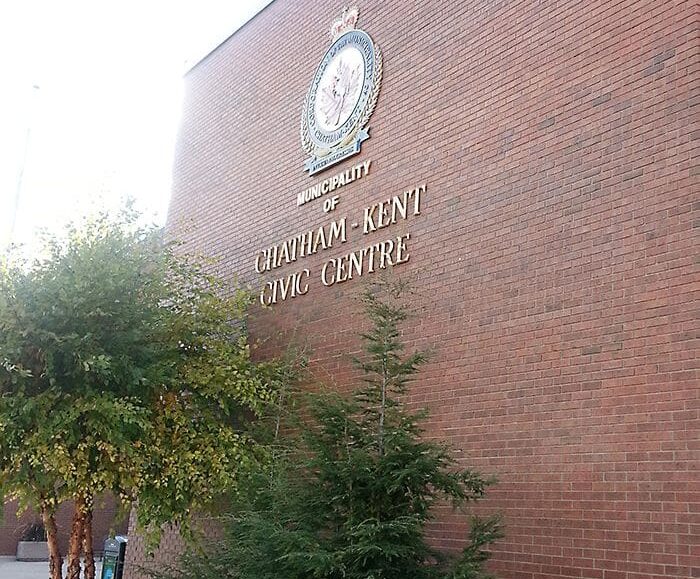
OK, dear readers, put on a happy face…when dealing with anyone associated with the Municipality of Chatham-Kent…anywhere.
Otherwise, you could risk violating their code of public conduct that council passed recently by a 15-3 vote.
The policy says you could be in violation of their policy for a host of reasons. We get the obvious ones, such as being overtly belligerent to municipal staff on municipal property, or threatening said staff.
However, what council passed is way, way too overarching. We for sure understand that an irate resident yelling at others in the Civic Centre should be removed from the building.
But this policy has allowances for municipal retribution if you are taking up what THEY deem is an inordinate amount of time of a council member or a municipal employee, even if you have a smile on your face and speak in deferential tones.
Too many emails? You could be subject to restrictions.
Complaining on social media to a staffer or a councillor over a municipal issue? That’s right, their policy reaches into Facebook, X and whatever other platform you might use.
You could be trespassed off municipal properties and barred from communication. Granted, that’s the worst-case scenario, but again, the level of response is determined by municipal management.
Sure, C-K staff will tell you what we just stated here is going too far and won’t be the case. But…consider who decides how far is too far. It’s in the hands of municipal management, not an outside party. Are you there arguing your case each time? No.
But if you want to argue the decision, it’s time to dole out $200. That’s the price of an appeal.
The potential violations listed in the policy also go beyond Canadian law. If you secretly record a conversation with municipal staff, you violate their code of conduct. Section 184 of the Criminal Code of Canada states that it is legal to record a conversation as long as one of the parties involved is aware of the fact and consents (and that could be the person doing the recording). It’s known as one-party consent.
One wonders if journalists, who are members of the public, could be subject to the code just for being good at their jobs. Good reporters use skepticism as a weapon. They don’t just blindly accept what one talking head says as gospel. Reporters will ask multiple people about an issue.
That, technically, is a violation of the new policy because “persistently approaching the municipality through different routes about the same issue” is deemed a policy violation.
We understand the concept behind the policy, but feel it takes things too far, with too little outside oversight.





